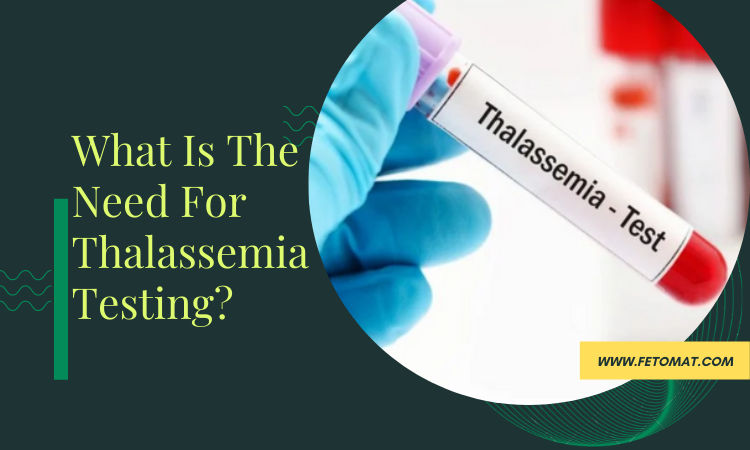A type of hereditary condition, Thalassemia is characterized by insufficient production of hemoglobin by the body. It is the hemoglobin that transports oxygen through the bloodstream and it is a type of protein that can be found within the RBCs of the body. The protein itself is made up of 4 subunits of protein – two beta-globin and two alpha-globin. Read and find out about the need for thalassemia testing in Kolkata.
What is the Reason for Thalassemia Testing?
Beta thalassemia is a type of condition that is characterized by the production of beta-globin protein due to changes in the gene.
Any alteration in the gene for the subunit Alpha globin leads to a condition referred to as Alpha thalassemia.
Beta thalassemia, according to various studies, is the commonest single disorder of genes in the country of India. Every year, more than 9000 children are born with thalassemia.
This is exactly the reason why thalassemia testing needs to be carried out.
How is Thalassemia Screening carried out before pregnancy?
Partners are screened for thalassemia before conception with the help of a test known as hemoglobin electrophoresis. Or, a similar kind of test – referred to as High-Performance Liquid Chromatography (HPLC test), might be performed. Once this kind of testing is conducted, it can be determined whether or not pregnancy care in Kolkata is needed for Thalassemia treatment as well.
The presence of the trait of thalassemia could also be tested with the help of a Complete Blood Count (CBC), a type of blood test that helps determine how many red blood cells are there in the body and whether – the concentration of Hemoglobin, there is any abnormality.
In case your test results display that there is a trait in you as well as your partner or both of you are a silent carrier of the disease, then your offspring has a 25% chance of not suffering from or becoming a carrier of Thalassemia major, 50% chances to be a carrier of the treatment of thalassemia and 25% chances of suffering from Thalassemia major disease.
How important is Thalassemia testing?
It is important to note that pregnancies with cases of Thalassemia are classified as high-risk pregnancies. In these kinds of situations, it is important for expecting parents to carry out their antenatal checkups regularly so that there is close monitoring of the health of the mother and the baby.
In case only the mother has the trait of Thalassemia, she might be at risk of developing anemia problems during pregnancy. Therefore, she needs to be under vigilance during the antenatal period and proper management is required according to the acuteness of the problem.
If the trait is there in both parents, then prenatal testing has a very vital role to play. It must be done before 12 weeks, to find out whether the baby suffers from Thalassemia major.
Two types of Thalassemia tests are carried out during pregnancy, through which it is possible to detect the condition before birth. In both kinds of tests, there is a small risk of miscarriage, which is around one out of every 500 births. Chorionic Villus Sampling (CVS) and Amniocentesis are the two tests that are carried out.

